
A displaced family next to a makeshift home at the U.N. base in Malakal. Footpaths are submerged for five months of the year during the rainy season. Many of the children here suffer from acute malnutrition and diseases such as tuberculosis. When it rains, homes are flooded with trash and human waste. James Sprankle/For The Washington Post
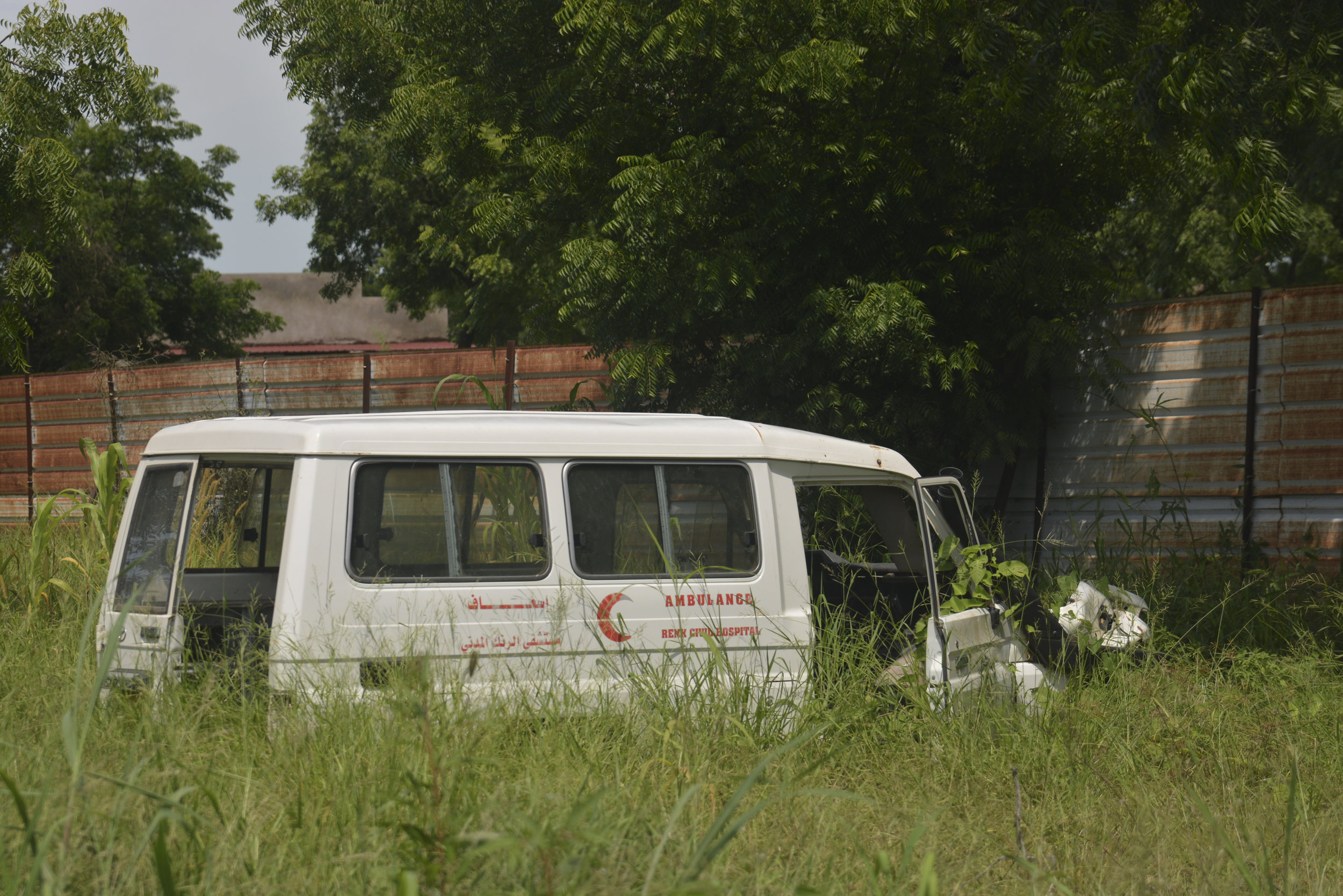
Violence against medical facilities is common in South Sudan and exacerbates the problem of malnutrition. Here, a Renk Civil Hospital ambulance sits stripped and abandoned next to the State Ministry of Health building in Malakal. James Sprankle/For The Washington Post
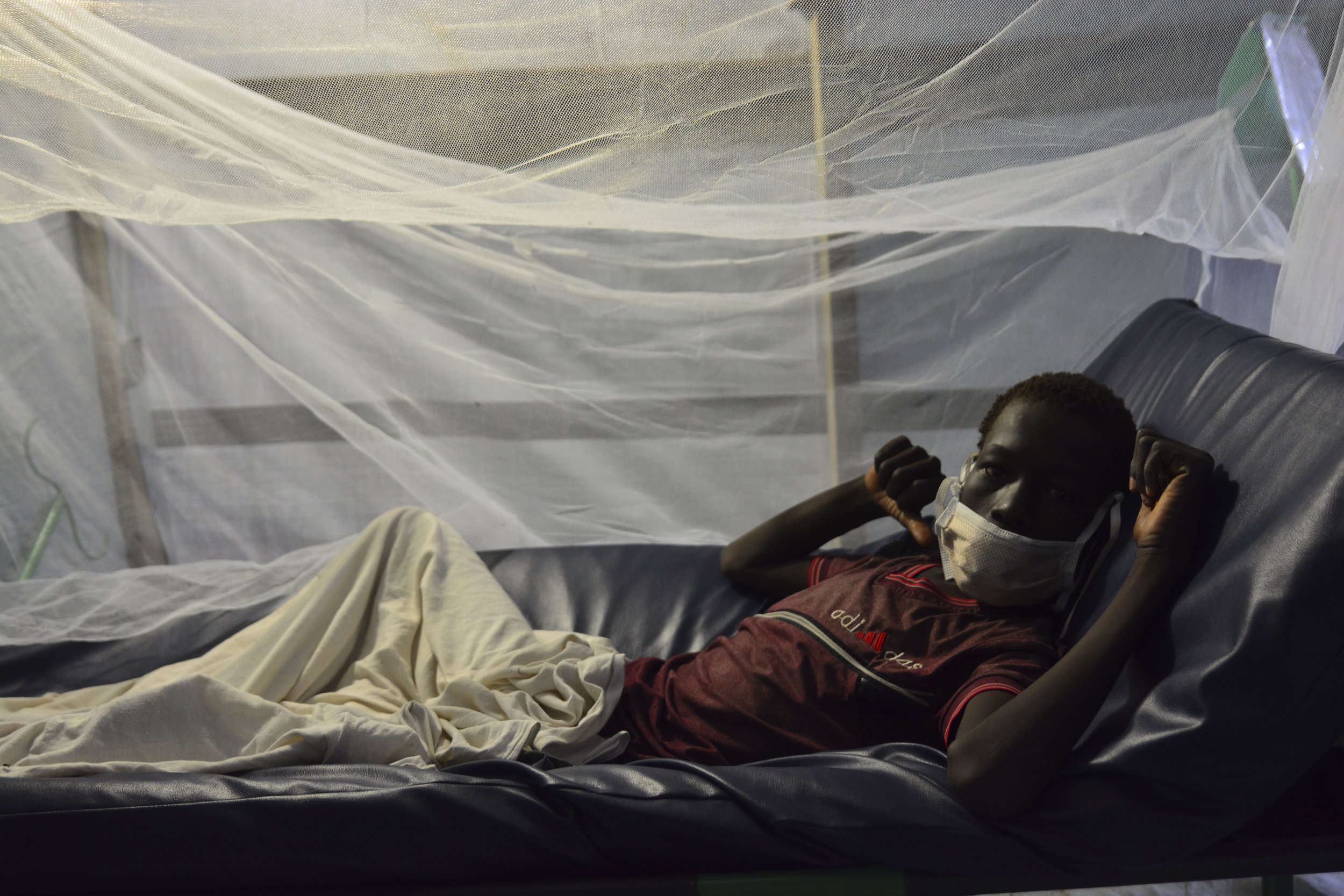
A patient in a Doctor's Without Borders tuberculosis ward. James Sprankle/For The Washington Post
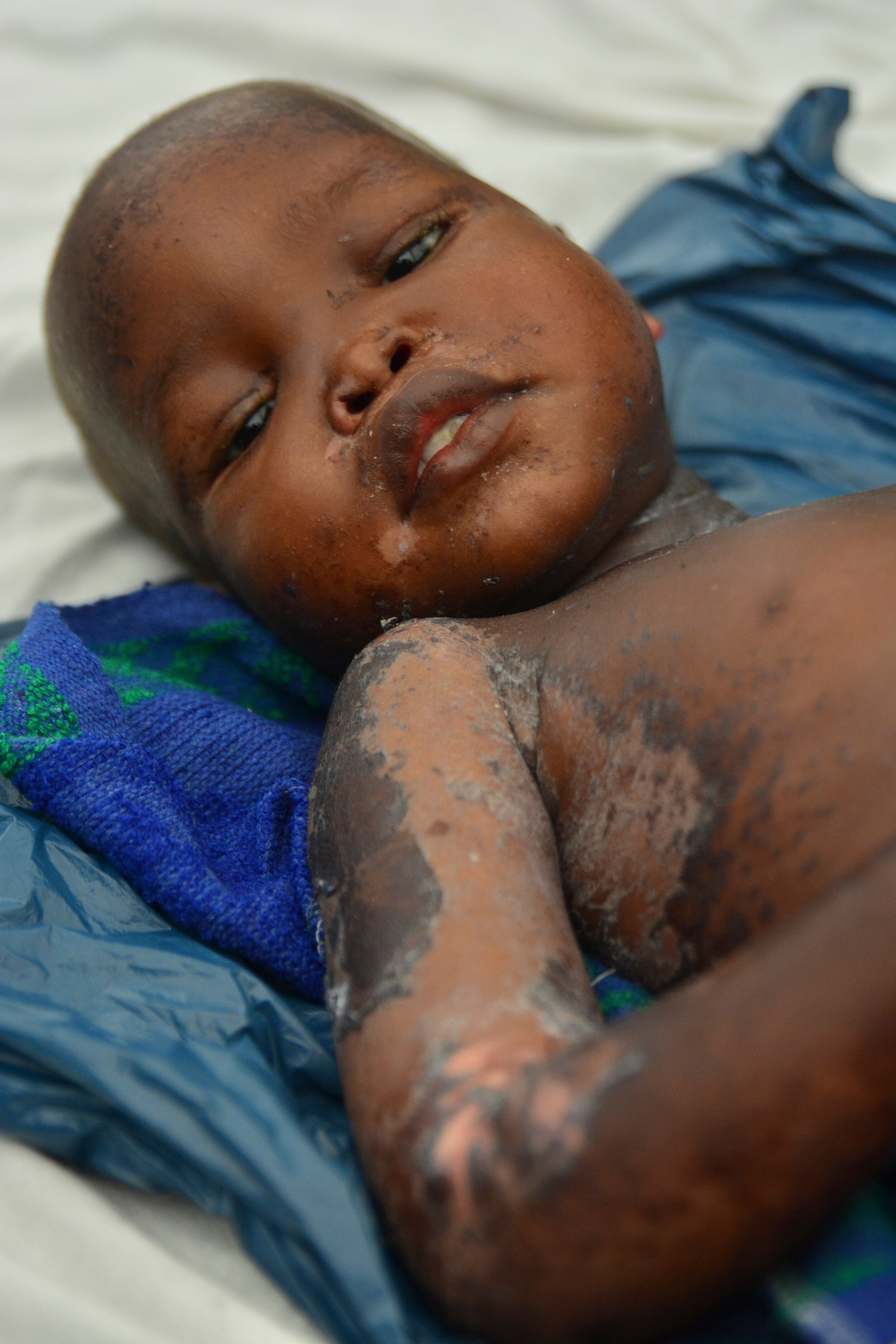
The most severe cases of malnutrition are treated in the Doctors Without Borders facility at the UNMISS base in Malakal. Children here are affected by a specific type of malnutrition called Kwashiorkor. Symptoms include distended bellies, ulcers, and edema. The skin fills with water and can break causing burn like lesions. (Photo by James Sprankle/For the Washington Post)
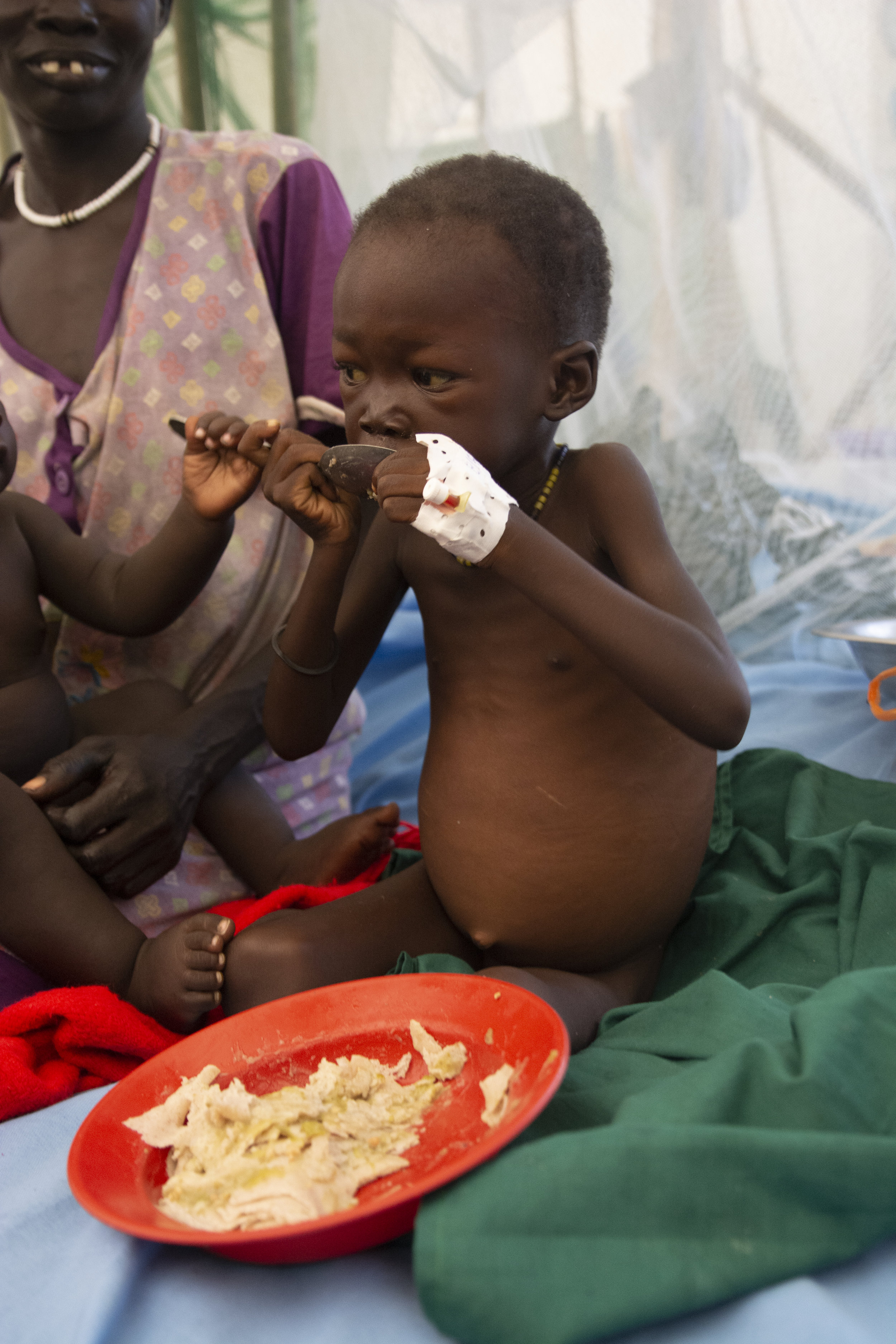
Malnutrition is epidemic in the outlying areas of Malakal. Because of fighting, many families fled to the bush where access to food and medical care is limited or non-existent. Forced to eat roots and drink dirty water many suffer from Kwashiorkor, a type of malnutrition which causes ulcers, organ failure, and edema. Children lucky enough to have found their way to the UNMISS base in Malakal, have a chance at recovery. (Photo by James Sprankle/For the Washington Post)
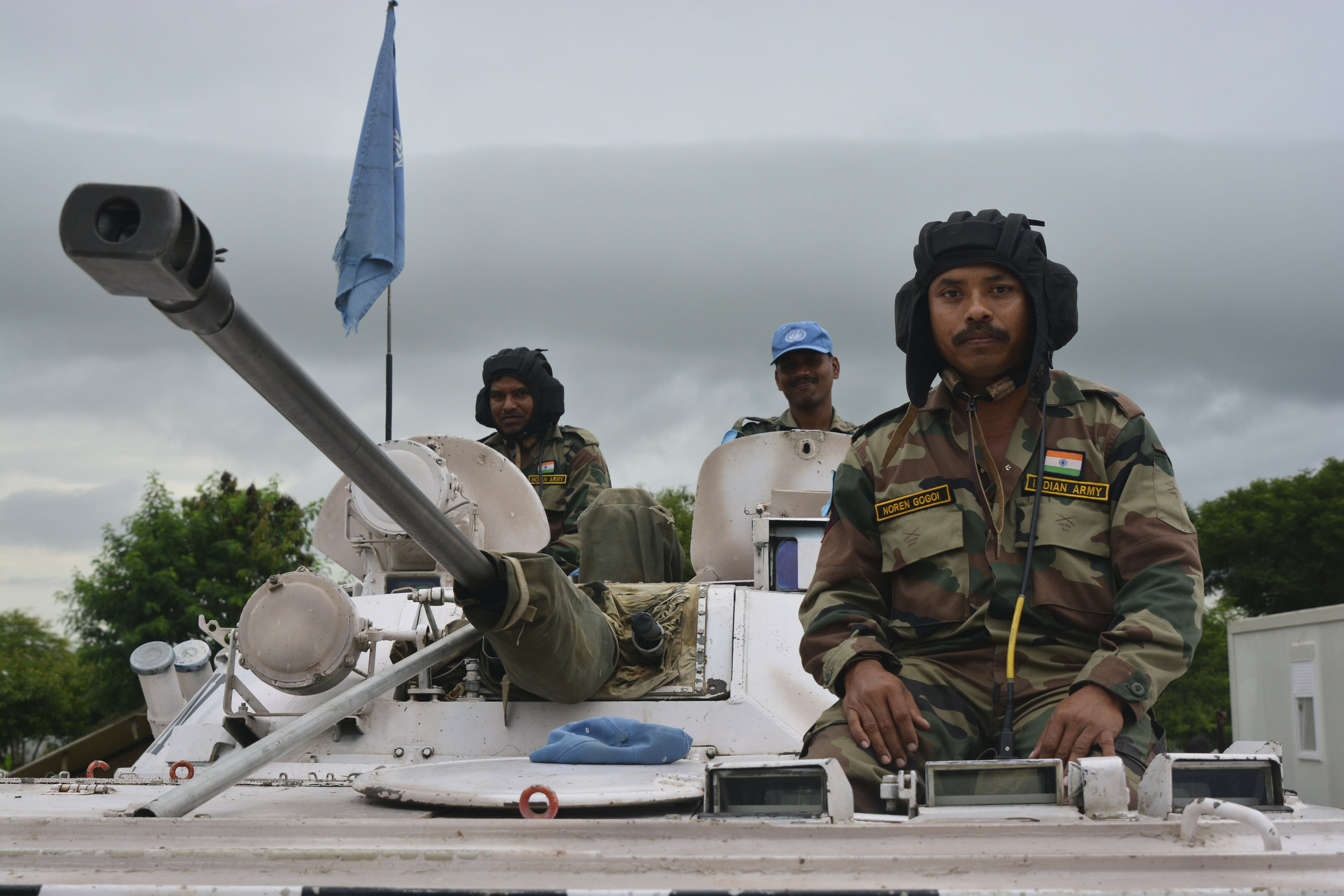
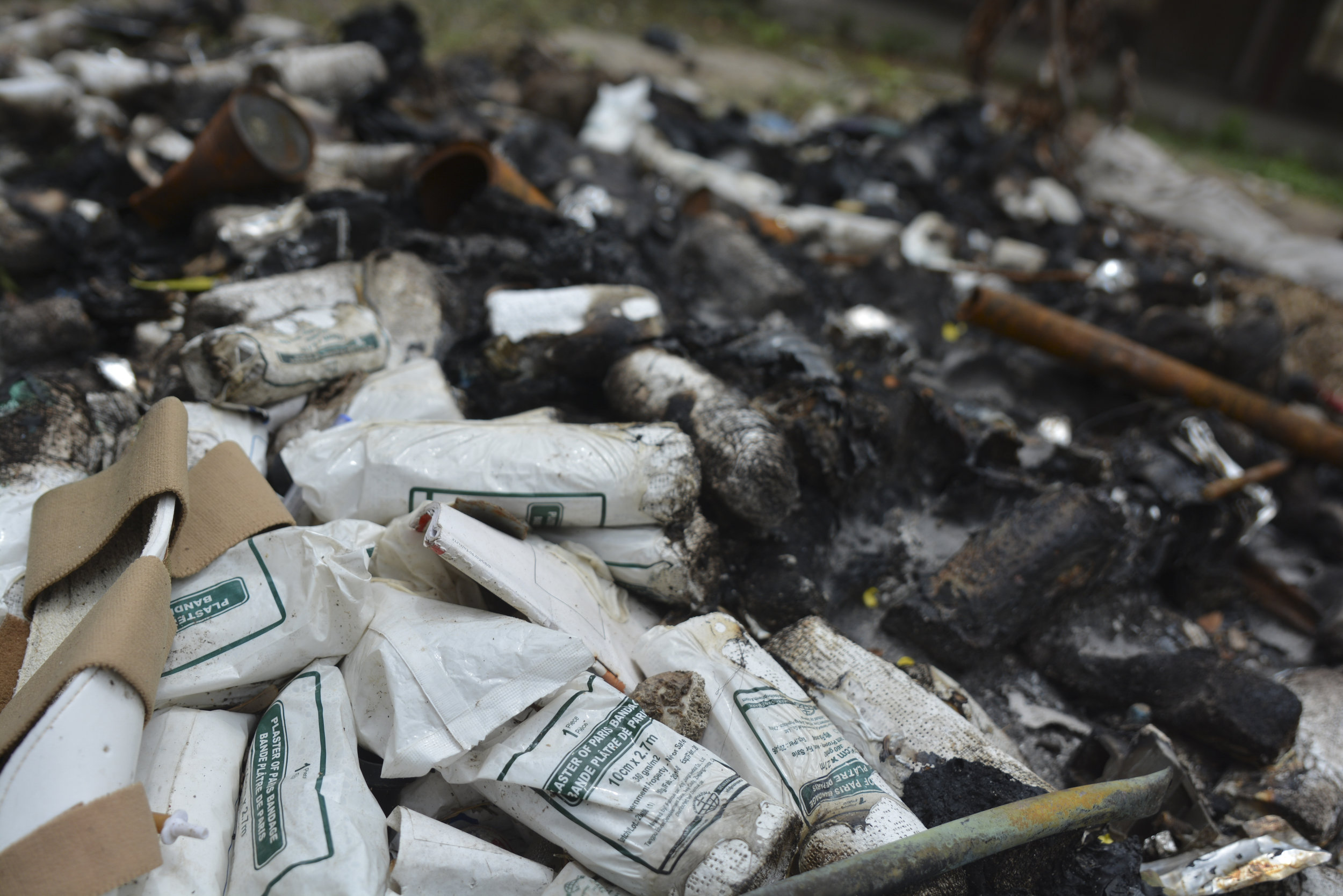
Bandages and other medical supplies cover the ground of the Malakal Teaching hospital. Damaged during an attack on the hospital, the supplies were actually burned by the medical staff because they were no longer sterile. (Photo by James Sprankle/For the Washington Post)
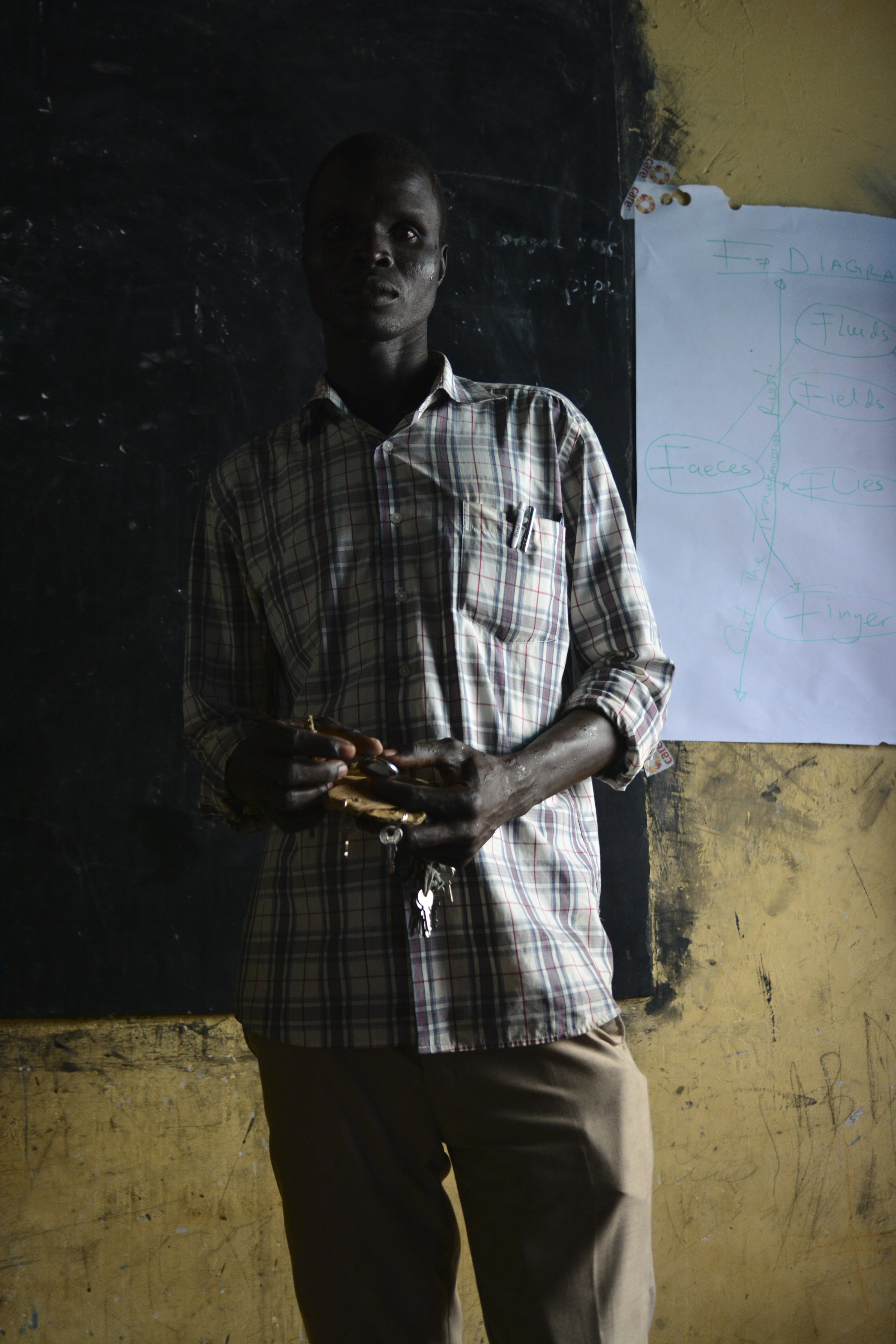
Orac Nyilu Deng is a teacher in the Upper Nile village of Wau Shiluk. A thirty minute boat ride up the Nile River from Malakal, many people fled to this area when fighting between government and rebel forces reached the area. Wau Shiluk become inundated with refugees who sought shelter in the school. Because of this, Orac has been unable to teach for months. (Photo by James Sprankle/For the Washington Post)
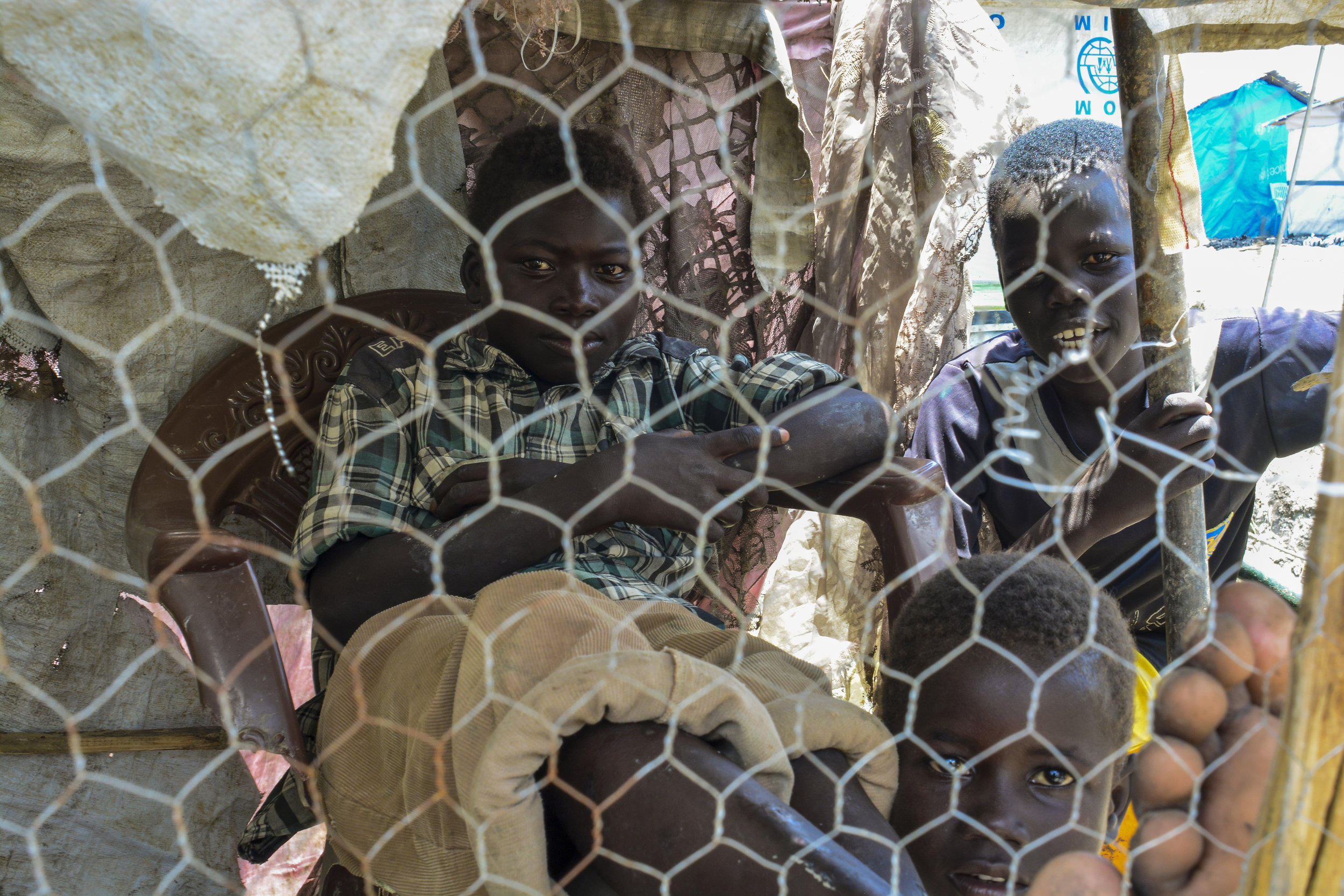
The UNMISS (United Nations Mission in South Sudan) base in Malakal was never meant to be a refugee camp. But since fighting broke out in the Upper Nile State of South Sudan, thousands of people have flooded the base for protection from ethnic violence. These new communities, called POCs, are made of detritus and during the rainy season homes flood with feces and filth. (Photo by James Sprankle/For the Washington Post)